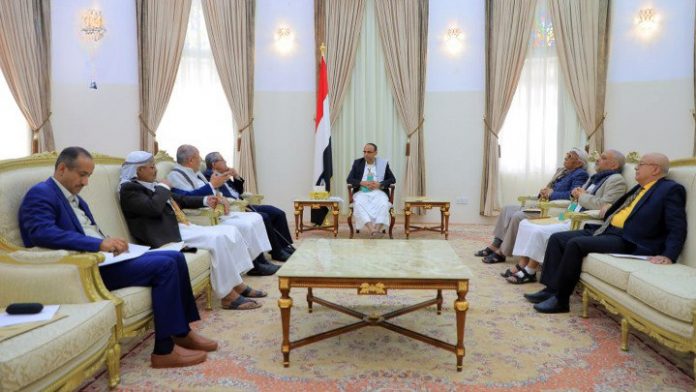The Supreme Political Council, in its meeting on Sunday, headed by President of the Council Mahdi Al-Mashat, called on the United Nations to distance itself from the legitimization of the blockade on Yemen.
The Political Council denounced the measures imposed to obstruct the arrival of ships to the port of Hodeida, holding the United Nations and its team responsible for any obstruction.
In its meeting, the Council discussed the latest developments in the political file and stressed that the warnings of the Leader of the Revolution, Sayyed Abdulmalik Al-Houthi, in his recent speech, are clear to all those keen on establishing peace in Yemen and the region.
The Political Council reiterated its adherence to the priority of the humanitarian file in any dialogues, as it is a humanitarian and legal entitlement for the Yemeni people.
During the meeting, the Council listened to clarifications from President Al-Mashat about the latest ongoing communications regarding the various topics of the consultations that took place with the delegations that visited Sanaa and dealt with the existing obstacles, as well as the scenarios that the leadership is studying to preserve Yemen’s sovereignty and extract the rights of the Yemeni people through various paths and options.
The Supreme Political Council reaffirmed the unity of Yemen and its rejection of all foreign military presence on Yemeni territory, including the American, British, Saudi, and Emirati ones, and that the Yemeni people have the right to deal with it as an aggression and occupation, and to take all options to achieve complete freedom and independence.
The Council held the Saudi-led aggression coalition countries fully responsible for plundering and depriving the people of their national wealth over the past eight years, cutting salaries of all state employees, and suspending services. It also confirmed its rejection and condemnation of American efforts to obstruct understandings regarding the payment of employee salaries from their national wealth.

















